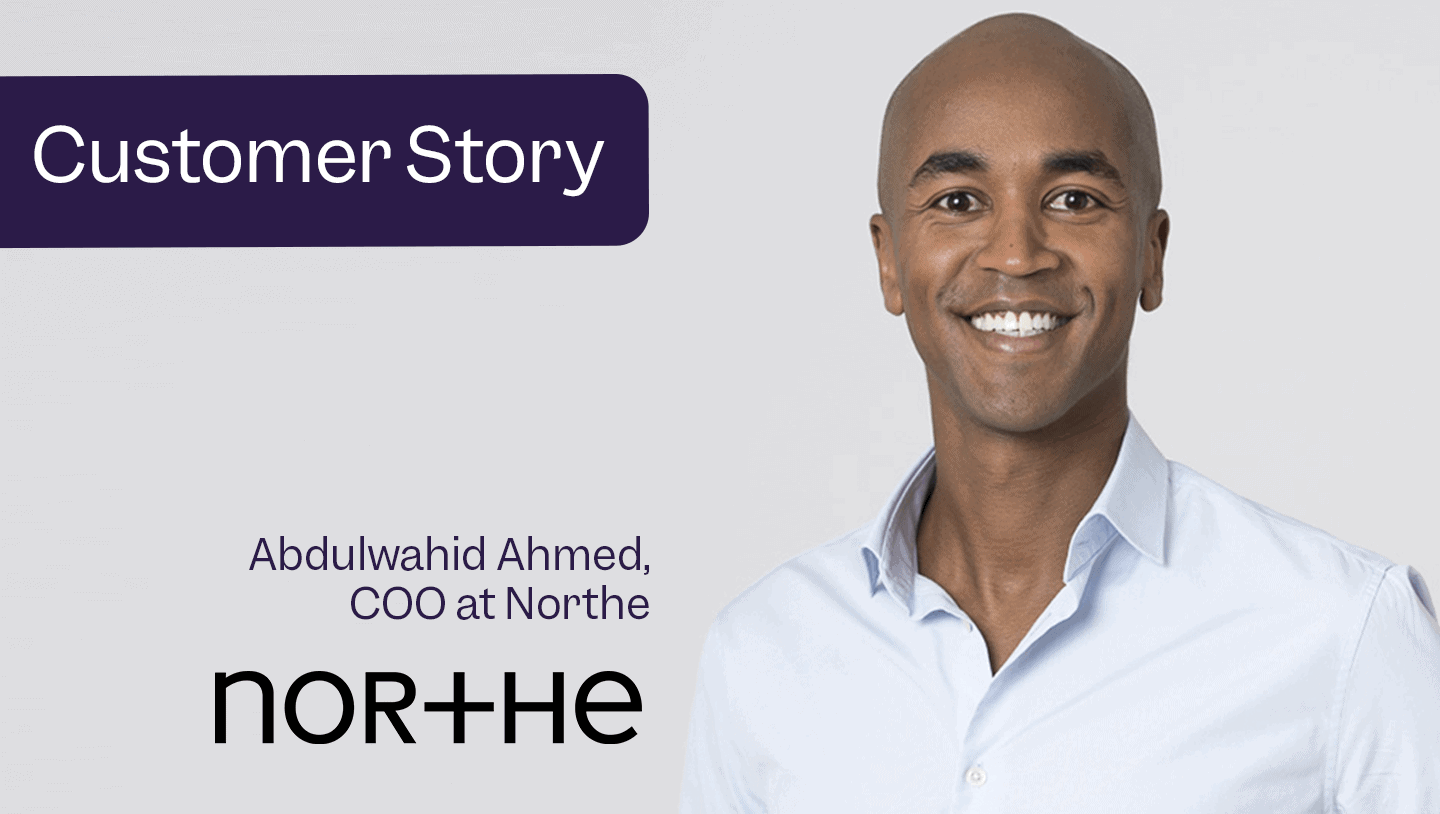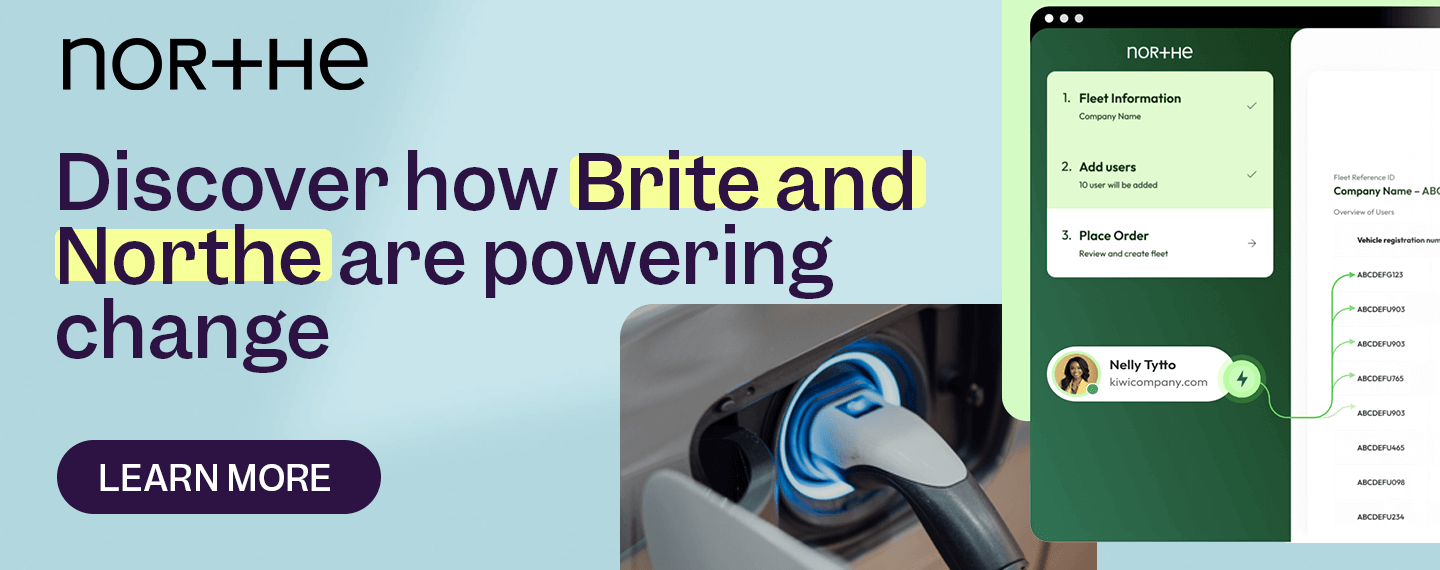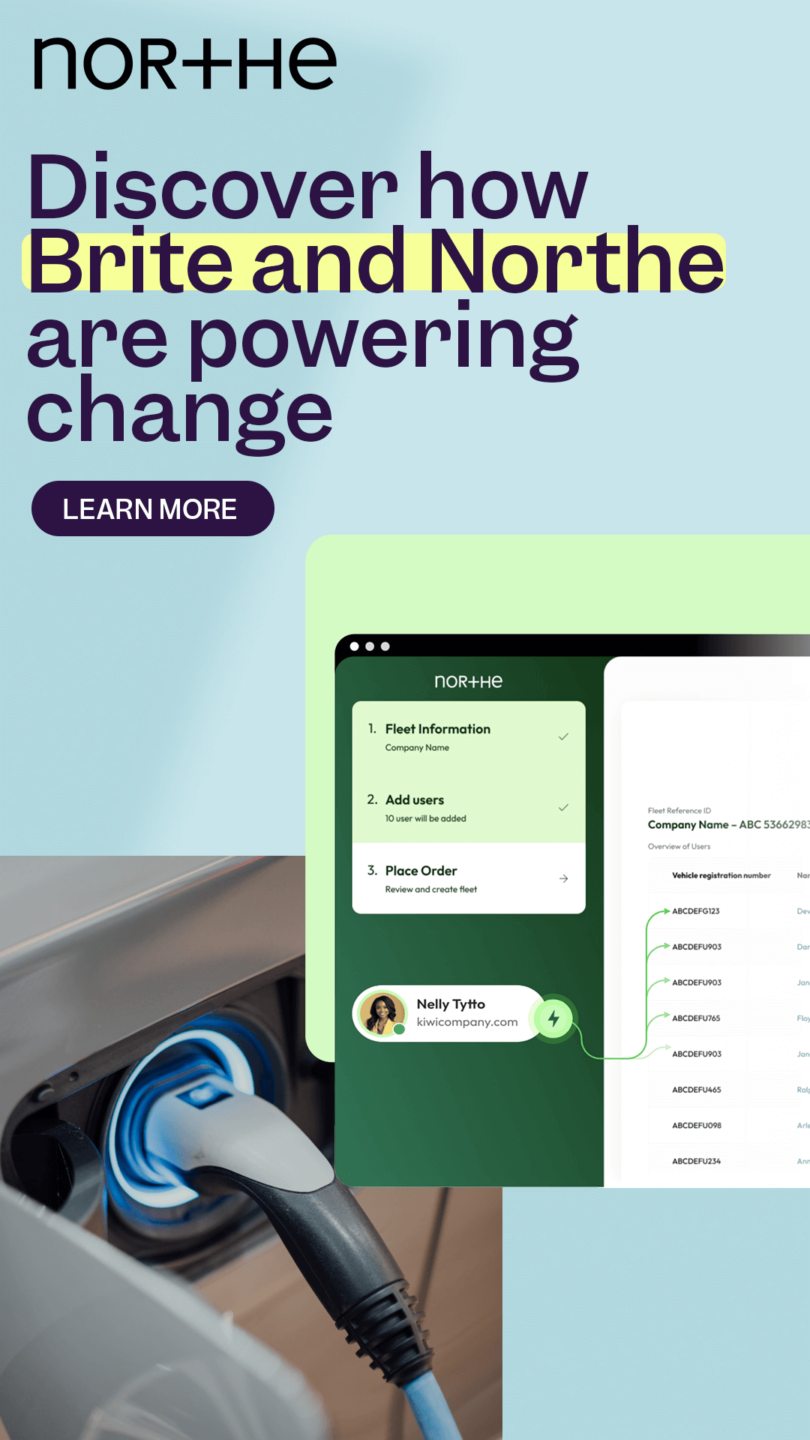
The pace of change can sometimes be astounding within payments. Yet, another industry that is driving change is the rapid growth and emergence of electric vehicles (EVs) as one of the solutions to ending our dependence on fossil fuels.
Brite spoke to Abdulwahid Ahmed, Chief Operations Officer at Northe, about how the Nordic charging solution is helping its customers make the green transition as easy and reliable as possible. And how new EV charging payments technology is helping streamline and process that change.
Can you tell us about Northe and the company’s mission?
Abdulwahid Ahmed, COO of Northe: Our initial mission is to solve the charging issue for electric vehicle (EV) customers.
Think of it this way: you have an electric car, and you have multiple different charging point operators. Like petrol stations for ICE (internal combustion) vehicles, they’re numerous and operated by different companies – except you also need a unique app to operate them.
Then, to make matters more tricky, there’s no reliability in terms of understanding once you get to a charger if it is working or not, even if it takes your credit card, etc. We consolidate all of the different charging point operators and their information into one app.
And that’s where we started from.
How has your mission developed since then?
Abdulwahid Ahmed: In the past 12 months, we’ve also pivoted towards fleet solutions.
A lot of our business is now working with leasing companies and large enterprise clients and taking care of the whole charging headache for them.
And this means covering three areas: one is public charging. If you have a sales or delivery team, our application is the only thing they need to worry about. They just swipe our phone app or the RFID card we provide for payment.
Second, we connect business EVs to home charging – this is where a large chunk of the charging for electric cars takes place. We’ve focused on employees charging at home because they need to understand precisely how much to invoice to their employer, and the back-and-forth of payments can be pretty complex – particularly without our solution!
Factor in the third area of on-site office charging, and you get the picture.
Today, we take those three charging areas and put them into one application. We then simplify all the payments back and forth, alongside any expenses. The result is that a business doesn’t need a large team taking care of the charging headache – – they can do it just with us and save money by simplifying their EV charging payments.
How do you see the relationship between customers and their EVs changing?
Abdulwahid Ahmed: It’s all set to change – starting with Ev charging payments.
We’ll see more sophistication and reinvestment between the employee and the employer when charging EVs. One of the things we were looking at, for example, is connecting directly with utility companies. Similar to public charging, we’re considering removing the need for customers to make multiple transactions, especially for business purposes.
How important is making the green transition for your customers as easy as possible?
Abdulwahid Ahmed: That’s a big part of what we’re doing here at Northe, and it is one of the biggest issues around.
If you speak to the average consumer, one of the reasons why they may not want to get an electric vehicle at this point in 2023 is range anxiety. Fear regarding: how would I charge it? What happens if my vehicle breaks down, and it’s in the middle of the night, etc? This is an enormous headache for private customers.
And then, for B2B customers, one of the most significant drawbacks is the amount of investment required. We are trying to remove the need for large EV infrastructures at workplaces. Instead, we aim to make it easier for employees to charge EVs at workplaces and use public chargers – making existing infrastructure part of the solution for B2B customers.
And then there is the investment for home charging, which customers probably already have or will need at some point. This investment is the biggest blocker for big B2B customers, too. We reduce that burden by enabling them to use the existing charging network quite a bit.
And then the last thing with using Northe is you need just one administrator versus a team of finance people taking care of the receipts, invoices, etc. In the long run, we want to be a cost-saver for our users.
What is the main challenge when simplifying EV charging payments?
Abdulwahid Ahmed: One of the biggest challenges is that there is no set charging standard. However, slowly, we’re trying to develop a standard ourselves. And that’s probably why the EV market is rising, but maybe not as fast as it could go. If people understood this need for a set standard and resolved it, then EV adoption could go even quicker.
What do users expect from Northe, and how is it reflected in your partnership with Brite?
Abdulwahid Ahmed: What our customers appreciate most – and I feel like we’re doing an excellent job at this – is that they don’t have to speak to us.
We take care of charging for them, and they get paid accurately and on time every month. They use a charger, and its numbers are the same as in the app. That’s the main thing for our customers: reliability.
It can be quite a nuisance to go to a location as an EV driver and find a charger isn’t working, or worse, find that payments are missing, or you’ve been charged triple what you saw on the app. These are the most significant frustrations from a customer’s point of view.
Therefore, we aim to improve communication reliability between chargers and our app. Yes, we have limitations as we’re not the hardware owners, but we’re trying to have as close a relationship as possible with these key infrastructure partners.
In terms of being reliable for EV charging payments and payouts, this is something we pride ourselves on. And when it comes to using Brite, this is a significant aspect for us because we’re not payment experts. Making sure customers get paid on time is critical for retaining customers.
What are the specific EV charging payments challenges that Brite helps you address?
Abdulwahid Ahmed: Reliability and the ability to scale internationally. We’re a high-growth company, and we have rapid expansion plans. We only pick partners who can grow with us. Scalability is an essential piece of the growth puzzle when looking to expand, and Brite provides us with that.
Reliability is vital, too. We expect to refine our processes even further – getting as close to automatic as possible. Overall, there’s a lot of synergy because the big thing is simplifying and streamlining – something Brite’s open banking technology helps us achieve.
We aim to offer as much of a smart solution as possible. We turn complex EV infrastructure, such as EV charging stations, into something quite simple to understand and Brite’s payout and data solutions help us do that.
Finally, why did you select Brite as a technology and payouts partner?
Abdulwahid Ahmed: We looked into the market, studied the key players, and decided accordingly. For us, there were three main reasons for picking Brite.
The first one was Brite’s presence in Scandinavia (and other regions). Having “real” people on hand who could support us quickly in getting going was important – versus dealing with a computer for support, which Brite’s competitors offered.
The second thing was looking at the type of clients Brite already works with and the solid track record they have. That showed us that if Brite is good enough for some of the largest fintechs in Scandinavia, it will also work well for us.
And then, finally, the third thing is the capacity for expansion with our solution. We aim to improve our payment processes constantly, and using Brite, the power is there to do exactly that.

